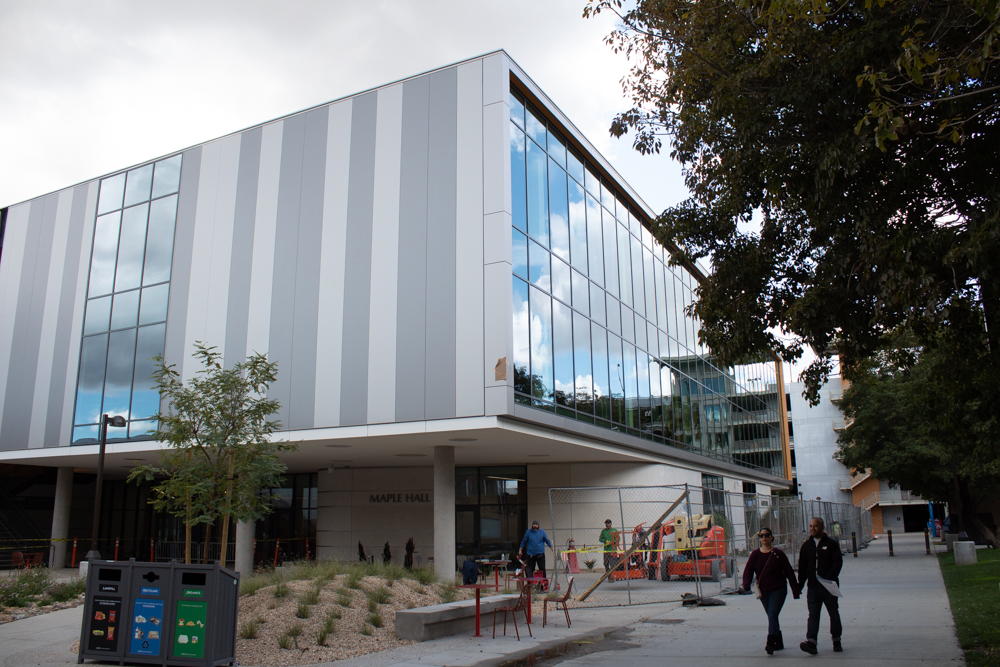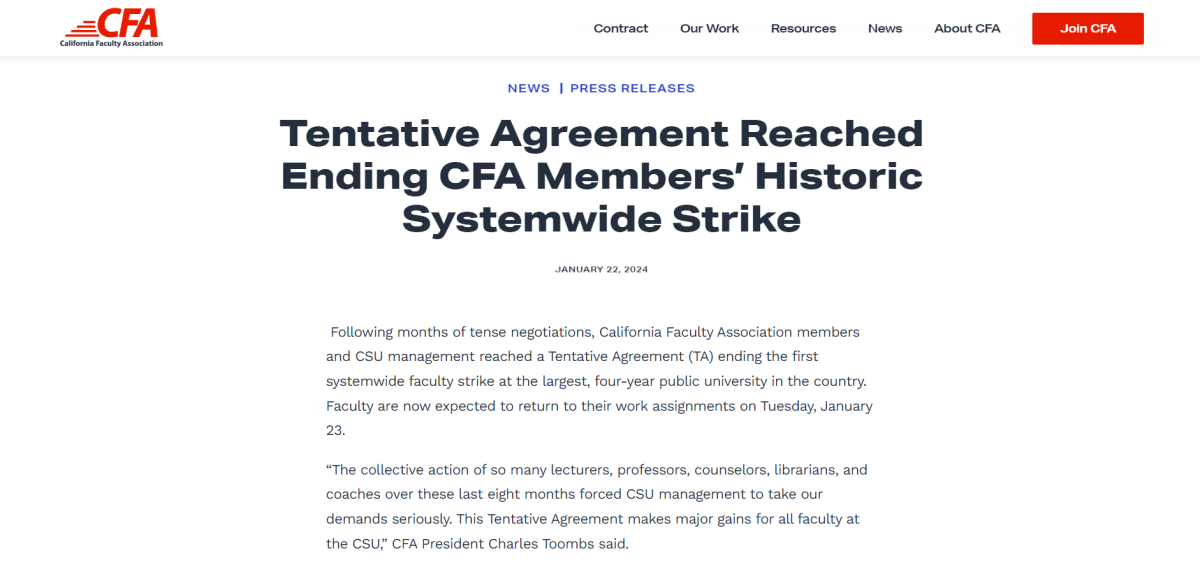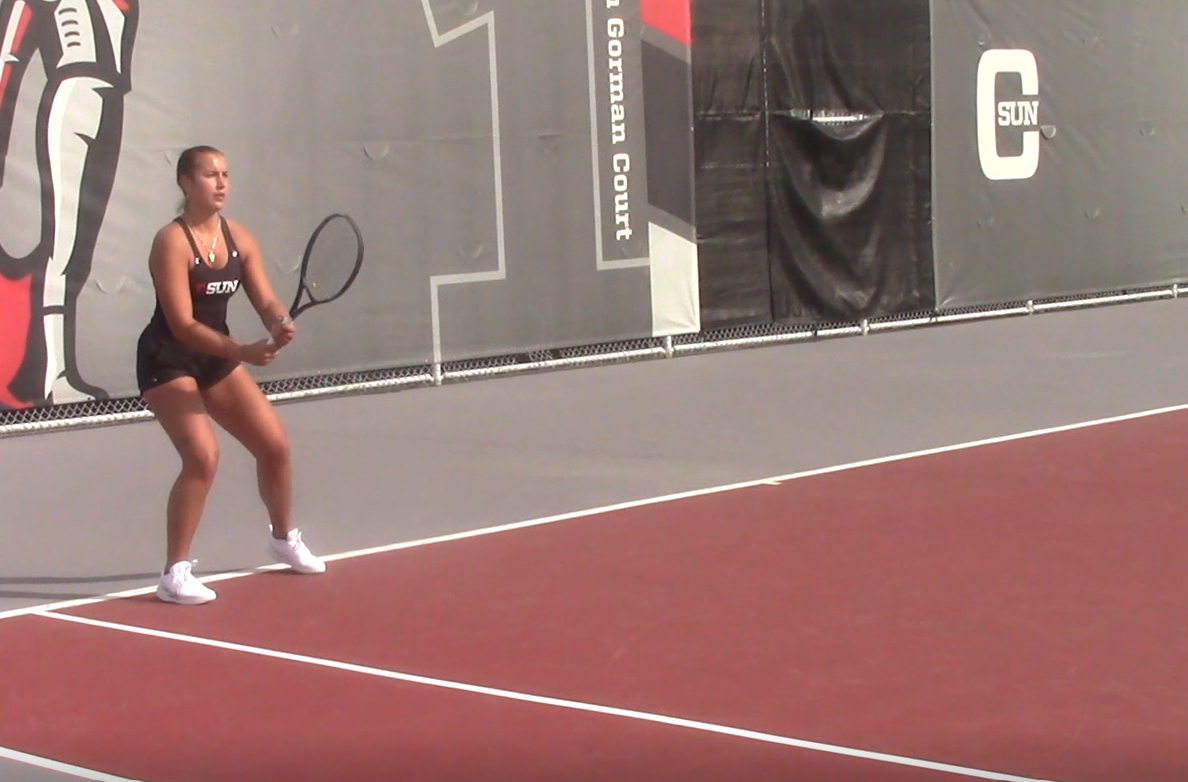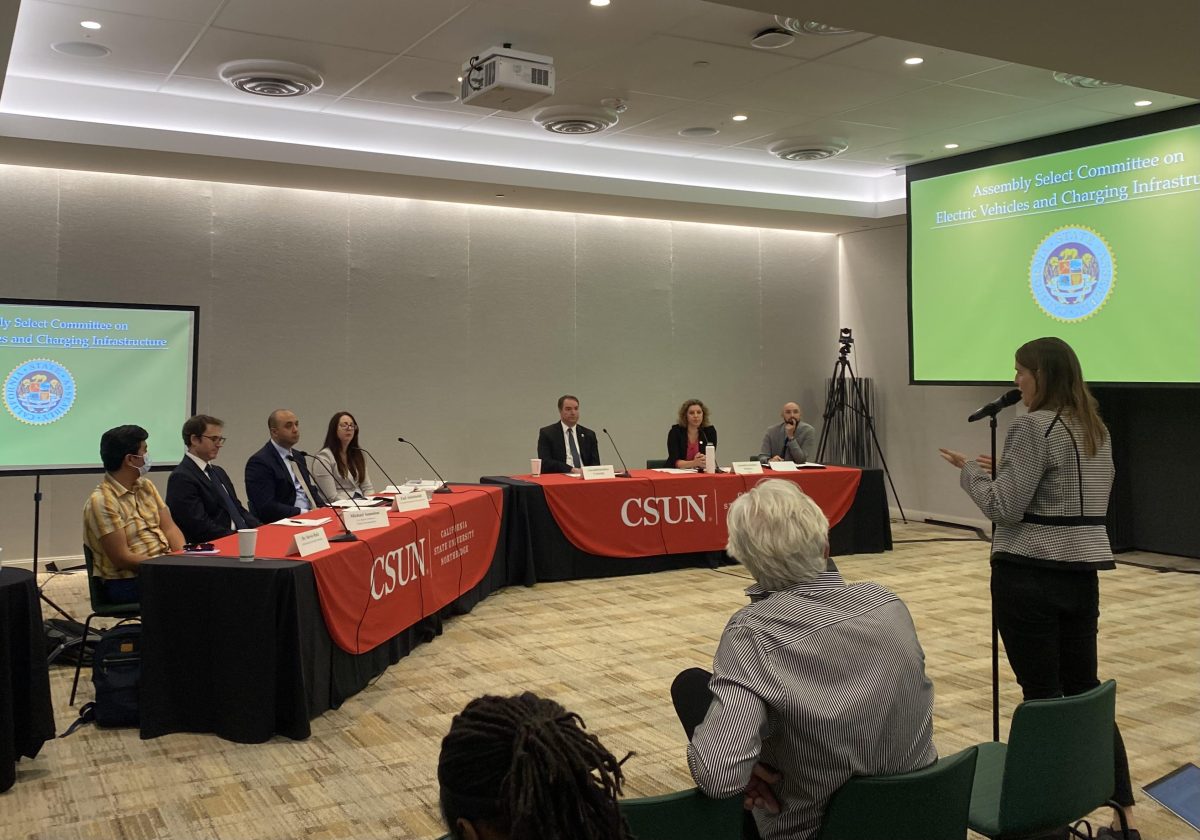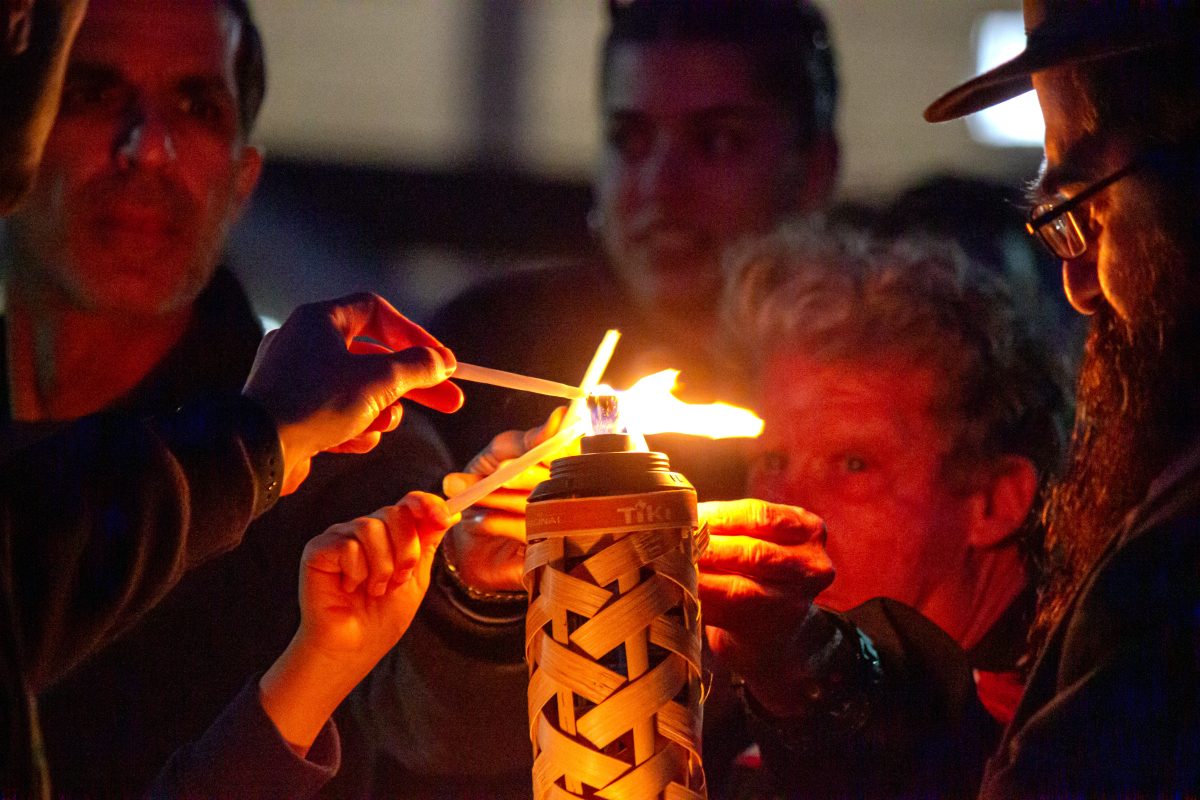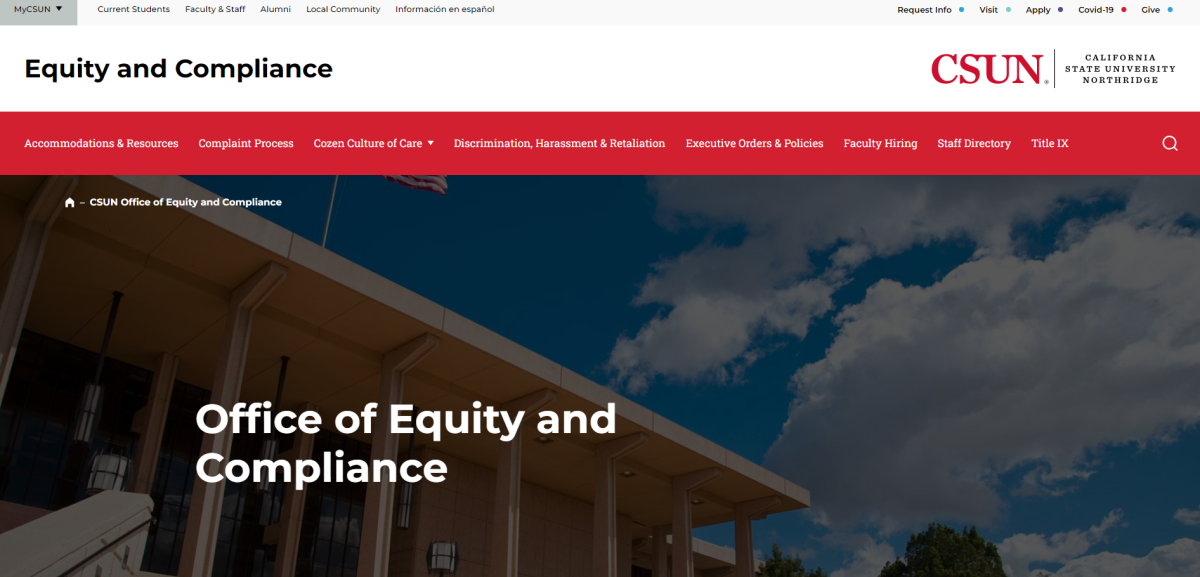As the number of measles cases in California and around the country continue to increase, CSUN health officials said no cases of the disease on campus have been reported and the chances of measles outbreak on campus are slim.
Dr. Linda Reid Chassiakos, director of the Klotz Student Health Center, said students are mandated by Cal State University executive order to be vaccinated for measles, or show proof through blood tests, the student is immune to the disease.
The measles, mumps, rubella, or MMR, series of vaccinations are generally given between 12 and 14 months of age and between 4 and 6 years of age — well before the person begins college. These vaccinations, Chassiakos said, provide up to 99 percent protection against the virus.
In one percent of cases, people whose immune system do not respond to the vaccine may still get the disease.
“There are some folks who might end up getting the disease,” Chassiakos said. “But even if that happens, having had the measles vaccine tends to reduce the severity of the illness.”
Measles can lead to swelling of the brain, pneumonia, ear infection and even death, according to the Centers for Disease Control.
“The highest risk group are children under age 5 and adults over age 20,” Chassiakos said. “There are people who choose not to be vaccinated, or their parents choose for them not to be vaccinated, and they are also at risk.”
Symptoms for measles include a high fever (between 104 and 105 degrees), runny nose, cough, pink eye and a bodily rash which begins at the head. These can develop seven to 21 days after initial exposure. A person is most contagious four days after the onset of symptoms.
Measles can be contracted by inhaling air containing the virus that has been coughed or sneezed. The virus can live on most surfaces for as long as two hours.
A measles case at CSUN could potentially come from anywhere, Chassiakos said, most likely from a person who has not been immunized. Students who exhibit potential measles symptoms are advised to visit the Klotz Student Health Center in order to be triaged. After a mask is placed on the student and isolated from the general health center population, a doctor or nurse practitioner will see the student.
Once the patient is diagnosed, student health center staff will counsel the student on steps they can take to feel comfortable and recover, and what they can do to protect others around them. The health center also recommends students who have been exposed to measles but have not shown symptoms of the virus, to self-isolate to not infect others.
“We will tell them what they need to do to feel better, and then we’ll give them instructions, as you need to stay home until all of your lesions have scabbed over, for example, for chicken pox,” Chassiakos said.
In the event a student at CSUN is diagnosed with measles, Chassiakos said, the Los Angeles County Department of Public Health would arrange for preventative treatment, in order to prevent the spread of the outbreak.
In the event of a more serious complication, Chassiakos said, the student health center may arrange for the student to be transported from the college to a nearby hospital.
“In essence, if we can take care of something here, we will,” Chassiakos said. “If something is beyond our scope, we’ll transition the student to a more complex care setting where they can get the care that they need.”
Students attending last week’s Meet the Club event on campus, however, did not seem at all fazed about a potential outbreak on their campus.
“I’m not worried about a measles outbreak. I’m worried about flu going around campus right now,” said senior Arthur Crockam, a kinesiology major.
Victoria Alexander, a senior deaf studies major, doubts there will be an outbreak at CSUN, even on a campus of 40,000 students.
“I mean, if maybe there was 10 people affected by it at once, then I could see it being a big problem,” she said. “That’s a concern, as a student and just as a citizen. But I’ve had my measles vaccination.”
Measles received national attention earlier this month after people visiting the Disneyland theme park between Dec. 15 and 20 were infected. The number of cases of people infected with measles in that outbreak stands at 102, as of this week, and includes residents from Arizona, Washington state, Oregon, Colorado, Nevada and Mexico.
In California, 92 people have been infected as of Tuesday.
Although rare in the United States, measles is more common in other parts of the world. According to health officials, it is believed the Disneyland outbreak began by an unvaccinated individual traveling from outside the country.
College campuses have also been affected, with cases of measles reported at the Cal State Channel Islands on Jan. 20 and the University of Minnesota on Jan. 23.
In the first case, a student was diagnosed with measles after returning from international travel. In the latter case, a student who does not live on campus, was diagnosed with the disease.
“Someone could be travelling and not realize they are coming down with the measles,” Chassiakos said.
The university health center’s aerosol transmissible diseases policy allows for staff to be equipped with gowns, gloves, hoods and a surgical mask-like N95 respirator that has been fitted for a doctor or nurse.
This protocol, in concert with the maximum level of immunization, is used to provide protection to student health center staff who may come in contact with a student infected with measles, or any other infectious disease that may present itself on campus.
Vaccines for Children, a Los Angeles County Department of Public Health program, offers free required immunizations to individuals 18 and under. The program is offered to people who do not have insurance or are low-income, and can be utilized at CSUN.
Immunizations, Chassiakos said, are bought by the health center at low cost for dissemination to the campus community. Students 18 and over may receive the vaccination and will be charged through cash services.
“I just look it up and avoid what spreads it,” said Lindsay Brue, a senior kinesiology major. “I’ve taken the vaccinations for it, as well, so just be intelligent. Look up the information on how to prevent it and do those things.”
To make an appointment, call the Klotz Student Health Center at (818) 677-3666.
For more information on the L.A. County immunization program, visit http://publichealth.lacounty.gov/ip/index.htm.
“If you haven’t had the two doses of vaccine, we encourage everyone to come. Either visit your doctor, or you can come to the Klotz Student Health Center,” Chassiakos said. “The nurse will go over all of your immunizations with you and let you know what is recommended.”

